Title: Heterogeneous Integration Roadmap (HIR)
Workshop Description: Heterogeneous Integration (HI) of disparate computing and communications functions is a key performance enabler in micro-electronic systems. HI is crucially enabled by advanced packaging since packages offer compact, power efficient platforms for HI. This talk will describe the role of advanced 2D and 3D packaging in enabling HI and will focus on the evolution of packaging to provide increased interconnect density. This workshop shares an update of HIR and progresses of HIR in recent years to a wide audience.
Instructors: Bill Bottoms (3MTS), Ravi Mahajan (Intel), Bahgat Sammakia (Binghamton University), Amr Helmy (University of Toronto)
Instructor Biographies:
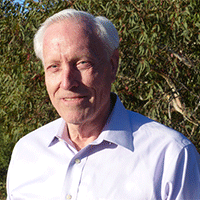
Dr. Bill Bottoms received a B.S. degree in Physics from Huntington College in Montgomery, Alabama in 1965, and a Ph.D. in Solid State from Tulane University in New Orleans in 1969 and is currently Chairman of Third Millennium Test Solutions. He has worked as a faculty member in the department of electrical engineering at Princeton University, manager of Research and Development at Varian Associates, founding President of the Semiconductor Equipment Group of Varian Associates and general Partner of Patricof & Co. Ventures. Dr. Bottoms has served as Chairman and CEO of many companies both public and Private.

Ravi Mahajan is an Intel Fellow and the Co-director of Pathfinding and Assembly and Packaging technologies for future silicon nodes. Ravi also represents Intel in academia through research advisory boards, conference leadership and participation in various student initiatives. Ravi has led efforts to define directions for package architecture, technologies and assembly processes at Intel since 2000, spanning 90nm, 65nm, 45nm, 32nm, 22nm and 7nm silicon. Earlier in his Intel career, he spent five years as group manager for thermal mechanical tools and analysis. In that role, Ravi oversaw a Thermal-Mechanical Lab chartered with delivering detailed thermal and mechanical characterization of Intel’s packaging solutions for current and future processors. A prolific inventor and recognized expert in microelectronics packaging technologies, Ravi holds more than 40 patents, including the original patent for a silicon bridge that became the foundation for Intel’s EMIB technology. His early insights also led to high-performance, cost-effective cooling solutions for high-end microprocessors and the proliferation of photo-mechanics techniques used for thermo-mechanical stress model validation. Ravi has written several book chapters and more than 30 papers on topics related to his area of expertise. Ravi joined Intel in 1992 after earning a bachelor’s degree from Bombay University, a master’s degree from the University of Houston, and a Ph.D. from Lehigh University, all in mechanical engineering. His contributions during his Intel career have earned him numerous industry honors, including the SRC’s 2015 Mahboob Khan Outstanding Industry Liaison Award, the 2016 THERMI Award from SEMITHERM, the 2016 Allan Kraus Thermal Management Medal from the ASME and the 2018 InterPACK Achievement award. He has been nominated as an IEEE EPS Distinguished Lecturer. He is one of the founding editors for the Intel Assembly and Test Technology Journal (IATTJ) and currently VP of Publications & Managing Editor-in-Chief of the IEEE Transactions of the CPMT. Additionally he has been long associated with ASME’s InterPACK conference and was Conference Co-Chair of the 2017 Conference. Ravi is a Fellow of two leading societies, ASME and IEEE. He was named an Intel Fellow in 2017.
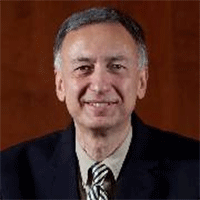
Bahgat Sammakia, a SUNY distinguished professor of mechanical engineering, is the Vice President for Research at Binghamton University. He is the founding director of the Small Scale Systems Integration and Packaging Center, a New York State Center of Excellence, and is the director of the Energy Efficient Electronic Systems Center, an NSF IUCRC founded in 2011 with a focus on reducing the energy consumed by data centers around the world. Sammakia served as the interim president of SUNY Polytechnic Institute from December 2016 to June 2018. He is a fellow of the American Society of Mechanical Engineers, the National Academy of inventors, and the IEEE. Sammakia holds 21 U.S. patents and has published more than 250 peer-reviewed technical papers. Sammakia, who received the SUNY Chancellor’s Award for Excellence in Scholarship and Creative Activities in 2010, was honored with the 2010 ITherm Achievement Award for his contributions to the field of semiconductor thermal management. Sammakia earned his bachelor’s degree from the University of Alexandria in Egypt and his master’s and doctoral degrees from the University at Buffalo. A former IBM senior technical staff member, Sammakia joined Binghamton’s faculty in 1998.
Amr Helmy is a Professor in the department of electrical and computer engineering at the University of Toronto. Prior to his academic career, he held a position at Agilent Technologies, R&D division, in the UK between 2000 and 2004. At Agilent his responsibilities included developing InP-based photonic semiconductor integrated circuits and high-powered submarine-class 980 nm pump lasers. He received his Ph.D. and M.Sc. from the University of Glasgow with a focus on photonic devices and fabrication technologies, in 1999 and 1995 respectively. He received his B.Sc. from Cairo University in 1993, in electronics and telecommunications engineering science. His research interests include photonic device physics and characterization techniques, with emphasis on nonlinear optics in III-V semiconductors; applied optical spectroscopy in III-V optoelectronic devices and materials; III-V fabrication and monolithic integration techniques. Amr has served the community in numerous roles. He has served as Vice President Membership for the IEEE Photonics Society (2008-2010). He is currently the CLEO Program Chair (2018-2020), where he previously served as the chair for the Semiconductor Lasers committee. He also serves as the Technical Program Chair for IPC 2016-2018, where he previously served as the chair for the committees on Semiconductor Lasers, Optical Materials and Metamaterials as well as the committees on Photonic Integration and Packaging. He has served as an associate editor for the Photonics Journal and is currently an associate editor for Optics Express.
Title: Introduction to Robotics, Self Driving Cars, and AI
Workshop Description: Have fun as you learn about robotics and program self-driving cars with this introductory course. From understanding sensors to programming EV3 robots for missions, this course will equip you with hands-on experience in programing robots and understanding AI and help you set up after-school STEM-Robotics clubs for your local community children. The hands-on lessons are taught by award winning teams from Education Empowers Inc. (501 (c) non-profit) as well as Intel Industry professionals (Intel).
Instructors: Anna Prakash (Intel), Oliver Chen (Intel), Alex (Shih-To) Fei (Intel), Priyanka Dobriyal (Intel), Elaina Ashton (Arizona College Preparatory)
Instructor Biographies:
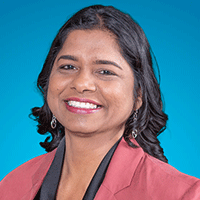
Anna Prakash received her Ph.D from Arizona State University in Chemistry. She began her engineering career working on LCDs, HDTVs and hand held communication devices. She joined Intel in 2004 as a Packaging R&D Engineer and is currently a Supply Chain R & D Engineer, in Global Supply Chain, Systems & Component Engineering group, focusing on automotive components. In addition to being a key contributor for over 20+ technical papers, Anna has several patents covering sensors and semiconductor packaging materials & process. Outside of work, Anna is passionate about promoting STEM education for local children. Along with her daughter Elaina, she co-founded Education Empowers Inc., (www.educationempowers.org), a non-profit, to promote STEM education. Anna is the recipient of the 2019 Intel Hero award, Society of Women Engineers "Prism Award" and the IEEE STEM outreach award for her contribution to technology and the community.
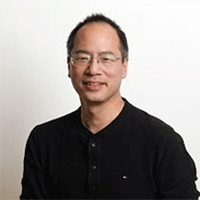
Oliver Chen is a Technical Marketing Engineer supporting AI in the Sales and Marketing Group at Intel Corporation. He is passionate about the intersection of leading-edge technology and new business opportunities. He thrives in expanding the STEAM pipeline by making AI and Maker content easier to consume.
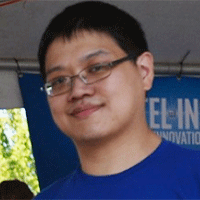
Alex (Shih-To) Fei is a Project Manager and Engineer perfecting cutting-edge 14nm and 10nm technology at Intel LTD. He also functions as Community Lead and Project Manager at Intel Makers Oregon, organizing events in collaboration with IOTG and Outreach Programs. Alex joined Intel after receiving PhD degree at Penn State in 2010.
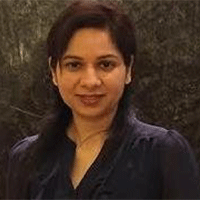
Priyanka Dobriyal is a Product Engineer in Datacenter group at Intel Corporation. She has a PhD in Chemistry from University of Massachusetts, Amherst and MS from Indian Institute of Technology, Roorkee, India. She is passionate about leading STEM outreach related activities.
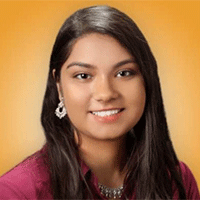
Elaina Ashton is a Senior at Arizona College Prep-Erie High School in Chandler, Arizona. She is the President of her High School VEX robotics club and also the President of the SiSePeude FRC all-girls robotics club. She spends her weekends promoting robotics for girls and underserved children living in the Phoenix, Arizona community. For her dedication to STEM outreach, she received the Cox connect2STEM award and the Chandler Mayor’s Youth of the Year award.
Title: Professional Development - Introduction to Intellectual Property and Patenting for Engineers
Workshop Description: Development and protection of intellectual property (IP) is a critical aspect of the engineering profession. Even in academia, IP plays a key role in addition to fundamental research. In this session, Mr. Dave Risley, an attorney with Thomas Horstemeyer will provide an introduction to IP and patenting for engineers. He will discuss what intellectual property means, when it makes sense to file a patent, as well as well as the logistical details of the patenting process. He will specifically focus on the synergy between patenting and fundamental research.
Instructor: David Risley
Instructor Biography:

Mr. David Risley is an attorney in the Los Angelese offices of Thomas Horstemeyer. He received his J.D. from Columbus School of Law, The Catholic University of America in 1995. He began his intellectual property (IP) career at the U.S. Patent and Trademark Office (USPTO) and has been with Thomas Horstemeyer since 1997.
Title: Professional Development - Entrepreneurship
Workshop Description: InterPACK 2019 is organizing a panel for science and engineering students and recent graduates who are interested in developing entrepreneurial skills. Participants will be introduced to the process of innovation, generation and protection of intellectual property, technology transfer and the commercialization of ideas and inventions. They will benefit also from the international perspectives and insights of leading experts in the field. The panelists will be from both academia and industry who will help and encourage students to start a successful technology-based venture. This panel will also address how academia and industry can go hand in hand to support post graduate students to be a "technopreneur".
Instructor: Jimil Shah
Instructor Biography:
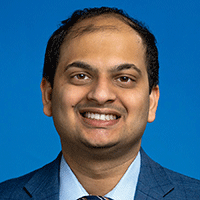
Jimil M. Shah is an Application Development Engineer for the Server Immersion Cooling of Data Centers in the EMSD Fluids Lab at 3M Company. Jimil received his PhD in Mechanical Engineering from UT at Arlington in August of 2018 under the guidance of Professor Agonafer. He then worked as a Post-Doctoral Research Associate again in Professor Agonafer’s group prior to joining 3M. His research is in the area of data center cooling with a focus on immersion cooling as well as mitigation of contamination related to airside economization. He also has interest in the general area of electronic packaging and internet of things. Dr. Shah is a professional member of ASME and ASHRAE. In InterPACK 2018, he received the “ASME Electronics and Photonic Packaging Division (EPPD) Student Engineer of The Year Award.” He is the recipient of the 2018 UTA College of Engineering Summer Dean’s Dissertation Fellowship and spring 2018 UTA I-Engage Mentoring Program Scholarship. He has also received the “Best Student Abstract Award” at IMAPS 2015, Los Gatos, CA. Dr. Shah has published 18 journal and conference papers with five additional journal papers under review.
Title: Professional Development - K16 Committee Mentoring Workshop
Workshop Description: This workshop is intended to connect junior and senior members of industry, academia and government laboratories in a formal mentorship program through the ASME K-16 committee. The workshop itself will detail best practices for mentors, and establish accountability standards for mentees that are designed to be at critical inflection points in one’s career. The program lifecycle is planned such that early-career members of industry, academia and government laboratories serve as mentors to Ph.D students in their last two years of study, masters students in their final year of study or undergraduates in their final year of study, while senior members in these fields will serve as mentors to early-career scientists. Emphasis will be placed on diversity in mentorship pairings and pairs will be identified in advance of the program.
Instructor: Ron Warzoha
Instructor Biography:
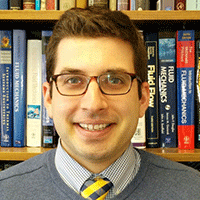
Ron Warzoha is an Assistant Professor in the Mechanical Engineering Department at the United States Naval Academy. He received his Ph.D. (2014) from Villanova University. His research interests include Thermal energy storage, micro/nano scale energy conversion and transport and Thermal management of electronics.
Title: Professional Development - Technical Communication
Workshop Description: Effective technical communication through oral and written means is extremely important for engineers and researchers. This workshop will focus on the oral communication. Two presenters – one from academia and one from industry will discuss key do’s and don’ts of oral technical communication. They will share their experiences and offer advice about designing effective oral communication tools.
Instructors: Ankur Jain, Milena Vujosevic (TDK)
Instructor Biographies:
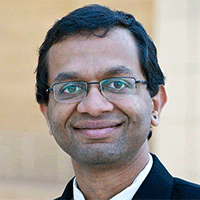
Ankur Jain is an Associate Professor in the Mechanical and Aerospace Engineering Department at the University of Texas, Arlington, USA. His research interests include heat transfer and energy conversion in Li-ion batteries, additive manufacturing and microscale thermal transport. He received the Lockheed Martin Excellence in Teaching Award (2018), UTA College of Engineering Outstanding Early Career Award (2017), NSF CAREER Award (2016) and the ASME EPP Division Young Engineer of the Year Award (2013).
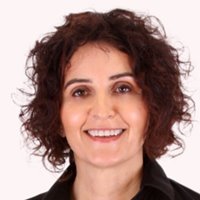
Milena Vujosevic is a Senior Director of Advanced Packaging in TDK where she is responsible for MEMS sensors package technology development and new product introduction. She has been in semiconductor industry for more than 20 years and prior to TDK she worked at Intel and Motorola. She has a PhD in Mechanical Engineering. Milena is the current Chair of ASME Electronic and Photonic Packaging Division.